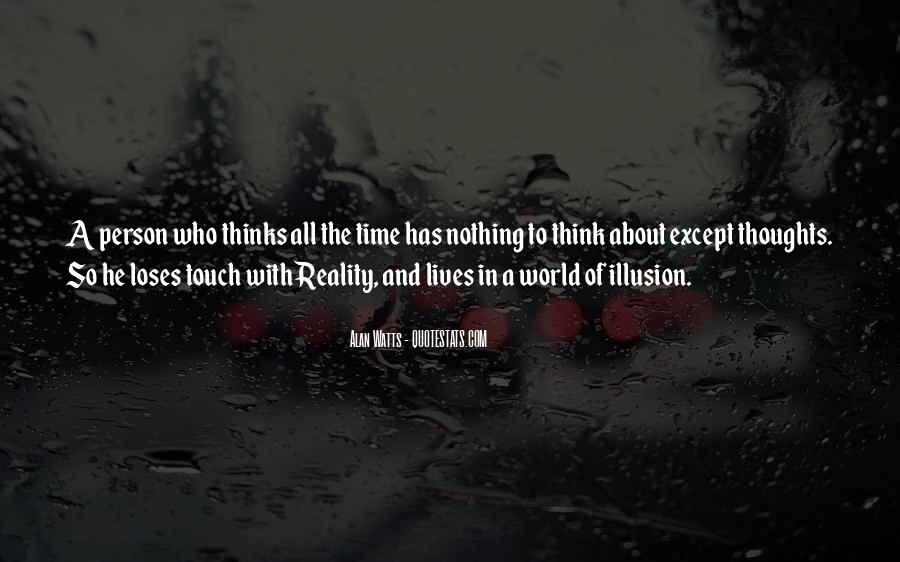On April 9, 2020
Webinar was held with the participation of Alexander Fridman, a business coach of an online school, an expert in regular management and professional exploitation of personnel. We would like to draw your attention to an interesting publication following the webinar’s footsteps, in which we are sure you will find useful information for yourself.
Crises are of a different nature, different cause, content, different impact and time for the economy to get out of it. But there are different “storms” and methods of controlling a ship during a storm. A crisis may be of different nature, but anti-crisis methods are quite standard .
As a result of the crisis, new types of business appear. There have been many success stories since the 2008 crisis. But who registers the number of companies that were unable to “get out” of the crisis with good results? Unfortunately, the list of “dead” is not as popular as success stories.
In addition, during a crisis, the Chinese character is often broadcast, which consists of two components – “danger” and “opportunity.” Everyone believes that a crisis is an opportunity for him, but for others it is a danger. In the best case, 50 to 50. It turns out that the probability of successful development in a crisis is from 100% to 50%, and this is a large percentage.
But this is not entirely true. It is possible that your competitors also think so, and who said that you will be lucky?
What the crisis will be for a particular company, it depends on the state in which it entered the crisis. When a crisis begins, something needs to be done, and the First Person feels like inside a meat grinder.
What is a crisis? This is a situation in which the previous methods, approaches, settings, management, contracts, schemes, business models, at best, cease to produce results, and at worst, they begin to give the opposite result.
What to do in this situation? It is extremely difficult for the First Person: he feels a certain nervousness, and even when he says “We understand everything,” in fact, anxiety increases.
What does anxiety often push the First Person to? When we are anxious, afraid of something, we turn on some protective mechanisms. A person develops two reactions to a problem: take and run. A typical mistake of the First Persons is that they either start to rush briskly, striving for very quick decisions, or, on the contrary, try to freeze, wait, wait and pretend that nothing is happening. Both may be somewhat erroneous.
Everyone is looking at the First Person, he must now utter something “heroic”. In a crisis, positive is needed, but vigor is not needed. Don’t be discouraged, you don’t need to cry, you don’t need to shoot, but you shouldn’t be cheerful either, pounding yourself “with your heels in the chest” is also not worth it.

What should be done and what should not be done?
Oddly enough, there is no need to rush. There are opinions that in a crisis you need to make quick decisions. What does the urge to make quick decisions lead to? We make decisions without taking into account all the nuances. The decision is quick, but wrong. And when the company starts to execute the wrong decision, nothing good comes of it.
Moreover, there is such a concept “cobra effect” . When a wrong decision without taking into account all the interactions leads to the situation becoming even worse, and when they try to correct it with even quick solutions, it sinks even lower.
There is a concept “cascading effect of a cobra ” when we are trying to fix a quick bad decision with one or two also quick bad decisions. Ultimately, the situation rolls into what in chess is called zugzwang – a situation when any move leads to almost a loss and nothing can be done.
✔One of the laws of anti-crisis management says: not every state can get to the desired quickly, in a single jerk and in a pleasant way. In a crisis situation, the company needs, no matter how ridiculous it sounds, to develop an anti-crisis strategy, and not look for a “magic idea.” Because in a crisis situation, the First Persons mistakenly try to arrange a creative revelry, the search for a brilliant idea that decides everything.
In a crisis, you need to sit down and develop an anti-crisis strategy. It sounds strange, because in a crisis you need to act quickly.
Indeed, one must act quickly in a crisis. But how fast? In order to develop an anti-crisis strategy, it takes three to four days (for a company with three or four management floors). It takes three more days to decompose this strategy to the level of executable operational plans. As a result, it takes seven days.
The strategy is developed and lowered to the level of RAM in seven days, it takes longer, of course. How much faster? Where to rush in this “heat”? Who can say, in all honesty, that they do not have seven days?
The strategy that the company develops should cover two areas:
1️⃣ The company’s actions in the market. In a crisis situation, everything changes, the usual technological chains break, the rating of suppliers changes, and cash gaps may occur. It is very important to understand what has changed and what to do about it.
2️⃣ The activities of the company itself. The company has some kind of management system. She is in a certain state. In order to implement actions on the market, as a rule, a company needs to change something within itself.
First Persons, having fallen into a crisis, at first try to gather, unite people, raise them to fight and instill confidence in them. But confidence builds knowledge, not mobilizing slogans. Therefore, in a crisis, not a set of advice is needed, but an anti-crisis strategy.
Lao Tzu said: “It’s better to put things in order long before the start of the turmoil.” A company that didn’t bother to build good corporate governance before the crisis began is building it now.
What are corporate backlashes?
Backlash – (German word), used in technology and denoting a certain gap between parts of the management mechanism. The more backlash, the more effort must be made to make your device perform some kind of maneuver. The greater the backlash, the longer it takes to complete the maneuver. And the more backlash, the higher the probability of failing the maneuver.
There is a result (when something should happen that should happen with permissible deviations), but there is a “type of result” (as a result, the wrong thing was done, and not so, and not in so much time).
There is a result “in Russian”: when there is no result, but there is an interesting story about the struggle with difficulties. These are backlashes.
The entire result of the company is produced at the lower hierarchical level, it is produced by ordinary employees. A month passed, fixed costs clicked. Did the company get what was planned and what could have been? Did you get a result at the end of the month, “like a result” or a result “in Russian”?
These are backlashes. Upstairs there was some kind of plan, orders were given, downstairs, in the end, something was done. This is the gap between correct design and execution. Anything that in a normal situation is simply annoying or simply imperceptibly “eats up” the profit, in a crisis situation can “ditch” the company. Because in crisis situations the company does not have extra resources: neither temporary, nor financial, nor others. Therefore, the second part of the anti-crisis plan is actions related to reforming the corporate governance system itself.
Do you want to unite and inspire people, to raise them to struggle with difficulties? But what good is it if it’s just vanity? If agitated people will do the wrong thing, in the wrong way, and not when it is necessary. But this is a consequence of corporate backlash.
Where can there be gaps? In marketing, sales management, in finance, in logistics, in manufacturing and purchasing, or in all these circuits, plus in the management of employees. What is the magnitude of these backlashes? Therefore, the second part of the anti-crisis system is the reform of the corporate governance system itself. Because a crisis is not a fire, it is for a long time.
Dear First Persons! Do not catch either the “lemming syndrome” (a polar rodent, seized by mass psychosis, and, as legends say, they run to no one knows where), or “bear syndrome” (calm, everything is in order, wait, the main thing is not to twitch). Neither is wrong. There is no need to rush, but there is also no need to wait. You need to sit down and develop an anti-crisis exit strategy. An anti-crisis strategy for your company, consisting of two parts: actions in the market and a corporate governance system with an emphasis on eliminating corporate backlash.
Here’s an example.
The company starts working remotely. She hangs up posters “Come to us”, “Write to us, we will deliver to you.” People start to write, they are ready to buy something. The company allows itself not to respond to requests, confuse orders, not deliver goods, deliver incorrectly, couriers arrive without masks and gloves. Outright disgrace is taking place.
In a crisis, the demands of the still solvent population increase, as money decreases, fears increase. People have a more rational consumption model. In a crisis, the one who is still able to buy “rules the show”. And he is not condescending to the company’s stocks, but on the contrary, is outraged that he turned to you in this crisis, he is ready to give his money, but you are not ready for this. You are mowing like in “peacetime”, which means that your staff is not mobilized, and your management system is useless.
In a crisis, we must work better! We must “fight” for money. But this requires not only choosing the right product line and actions on the market. It is necessary to work clearly and delicately in corporate governance. And if you haven’t set it up before, you will have to do it now.
Don’t think that in a crisis your loyalty increases. In a crisis, demands are heightened. Do not think that in a crisis “danger” and “opportunity” is 50-50 this situation. And not a thrown 50-50 coin.

????Do you want your employees to think and act correctly? Teach them this! Alexander Fridman talks about this at the online course Managing the choice of subordinates: how to lay the foundation for the right corporate culture, which will begin on October 9????
At the end of the webinar, from the “Answers to Questions” section, we selected and published useful questions about the crisis and Alexander Fridman’s answers to them.
Which “defects” companies will die first? What will be critical for survival?
Alexander Fridman: Either those who will not find new solutions in this “mad kaleidoscope”, or those who could not fulfill the wishes of the client. The more there are backlashes, the lag from the required to the real, the severity of the competition, the more there will be lags and the greater the likelihood that these companies will die first. There is also the concept of “financial reserve”, it is clear that the more extra money, the more you can allow yourself to be ineffective.
How to reduce stress at the level of line employees during ” tightening the nuts “? What should the personnel focus on: on the role of a leader in a crisis or on the role of everyone in the team?
Alexander Fridman: How to reduce the stress level? There is enough information about what is happening outside the company and what the company is going to do about it. The more acute the crisis, the more often the internal PR. This is not about cheerful speeches, but about specific information. What is happening on the market now is:
“We have such problems. We are going to do this, the following is required of you … ”Therefore, it is necessary to focus not on the role of a leader, but on actions and your role. In a crisis, anxiety increases, and the more often a person is given specific information about what is happening and what needs to be done, the less anxious he is and the easier it is for him to judge. You should not focus on the role of a leader: the authority that you have has not diminished yet, but it has not increased either. Don’t bang your heels on your chest.
A large number of workers will enter the labor market in the near future. Recommend an algorithm for recruiting employees in a severe crisis, as well as an algorithm for managing a large team.
Alexander Fridman: I’ll start from the end. Management of a large team and a small one, in my opinion, is not fundamentally different. The whole question is how the management system is set up and how professional your leaders are.
About the selection. A bunch of such documents: functionality, job requirements and selection methodology. We must select people in relation to the position and the strengths of a person must correspond to the functionality, if not 100%, then at least 50%. A person’s weaknesses should not cause major management problems. Therefore, tie together three documents: the functionality of the position, the requirements for the position (which person should occupy it) and selection methods. This can also be part of the anti-crisis plan. These techniques can be useful in deciding who to leave and whom to get rid of, because in a crisis it is sometimes useful to get rid of someone.
Alexander Semyonovich, from the experience of previous crises, what 2-3 parameters need to be taken now (at the very beginning) under enhanced control?
Alexander Fridman: I would bring this intangible parameter as control accuracy. The fact is that in a crisis the company faces two mutually exclusive requirements: quickly and accurately. Accuracy is very important: what is needed, as needed and when needed. If you take control of this parameter, the rest will appear. And the rest all depends on the financial indicators, it’s up to the financier. And you, as the owner, need to take control of the accuracy, because everything else will be the result of accuracy or inaccuracy.
The Premium Management Online School thanks Alexander Fridman for an interesting webinar, for the fact that Alexander Semyonovich raised and revealed such important topics for business.
